+-+copia.jpg)
.jpg)




CRITICA EN EL PERIODICO "LA VANGUARDIA" (14-2-1951)
.Podrán reprocharsele muchos defectos al cine americano, podrá decirse de él que peca de comercializado y vacuo de cándido y superficial, pero nadie dejará de reconocer que en esta hora dada a los más amargos neorrealismos, cinematográficos, es precisamente el cine americano que todavía huye de ellos, fluye para contarnos de vez en vez como ahora en "Vida de mi Vida" una historia sencilla tenue y conmovida, en la que vibran con la resonancia de viejas melodías olvidadas, los temas constantes del amor entre padres e hijos, del amor con que la vida llama en las puertas floridas de la adolescencia y de la visión del mundo que esta misma adolescencia tiene cuando ante si se abre el tremendo interrogante de un problema que esta película plantea y resuelve de la manera mas noble y ejemplar. En cierta forma "Vida de mi Vida" se apoya en motivos excesivamente convencionales y acaso también se componga toda ella sobre cálculos un poco elementales, cuyos resultados puede obtener cualquiera, esto es cierto, pero vale la pena señalar también que los valores de la película se originan precisamente en aquellas caractericticas, gracias a las cuales, el drama no se sale nunca de los limites reales de una emoción tibia y dulce que se apodere poco a poco de la sensibilidad del espectador, hasta rendirse a las alegrías de la joven "Gail", quien solo llega a saber lo bueno ha sido Dios con ella, cuando ha sufrido la prueba de encontrar a su madre que nunca lo había sido para ella. Diríase a juzgar por lo que antecede, que hay en el asunto un cierto regusto de novedad rosa, más quien lo considere así, no dejará de reconocer asimismo, que "Vida de mi Vida" sabe muy bien como eludir la fácil tentación del sentimentalismo al alcance de todos los bolsillos espirituales, para componer su gracia cordial humana en torno a la luz y la frescura de un modo de vida en este caso el de una familia media norteamericana descrita con autentica ternura y simpática tanto en lo que se refiere a los pormenores de la existencia hogareña como el perfil de los personajes, la buenísima Ann Byth ya encajaba en una excelente norma interpretativa, pasando por todos y cada uno de los interpretes del reparto, en el que sobresalen la creación tan breve como soberbia de Ann Dvorak, en la figura de más profundidad dramática de la cinta. Todas las virtudes sensibles y de suavidad que distingue a "Vida de mi Vida" son producto pues de la inteligencia con que se ha desarrollado un tema, que tal vez en su forma original tuvo mayor vigor patético, aunque, no mejores propósitos emocionales. De cualquier forma y aparte los méritos aludidos destaca la realización, púdica fina legitamente realista de David Miller, y el sentido dominante poético que se ha infundido a buen numero de secuencias a las que sirve de soporte lírico de un melódico "left-motiv" tema musical. .H. SÁENZ. GUERRERO
OOOOOOOOOOOOOOOOOOOOOOOOOOOOOOOOOOOOOOOOOOOOOOOOOOOOOOO
My Three Daughters.
Kids. They're everywhere. Always underfoot, or out and about, and it's only a matter of time before one spills the beans and unearths your family's buried secret. In this timely drama from the far-off Forties, the secret in question is the past adoption of the oldest daughter, played by the always capable Ann Blyth. She was an actress who was small boned, with a porcelain-like face and a voluminously deep cadence. Afterall, she was a trained opera singer. Although petite, it was always difficult (for me) to view her as a teenager.
Let me first say, the extended opening sequence concerning the arrival and assembly of a spanking new television set is quite remarkable. First, I found it difficult to believe that televisions came in pieces like your kid's bicycle. Second, the rather tipsy and unstable relationship between the two oldest girls is on display--roof-side--within full view of all the neighbors. And us. The man of their dreams just so happens to be the fellow who is installing the aerial on the family's roof. The entire scene teeters on the shingled see-saw of a colossal courting snafu. And third, the youngest daughter's constant badgering of the other delivery man, as he attempts to assemble the glowing box of fuses and tubes, can only be described as finger-nails-on-blackboard annoying. But forgiven. Perfectly contrasted with the level-headed Blyth, Joan Evans, the middle daughter, is a revelation of bad intentions and devious schemes. But there is still something appealing about her. We don't root against her. Natalie Wood, the youngest daughter, has all of her acting ducks in a row. As usual. The best performance, however, is turned in by Ann Dvorak, playing the woman who puts baby Blyth up for adoption. She's a bundle of raw nerves in her two pivotal scenes. She smokes like an incinerator, paces back and forth and has her head on a spinning rotor. The meeting between her and Blyth is heartbreaking. The movie doesn't try to soft peddle the truth: life is not always neat and tidy like a box of soap powder.
OOOOOOOOOOOOOOOOOOOOOOOOOOOOOOOOOOOOOOOOOOOOOOOOOOOOO
Melodramatic movie with interesting topic
Director David Miller takes us into the lives of a homespun family where everything appears to be peachy until one of the teens find out that she is adopted. After such a shock she eventually wants to locate her birth mother and thats when "Our Very Own" gets interesting. The dependable cast includes Ann Blyth as the adoptee, Joan Evans and Natalie Wood her sisters, Jane Wyatt and Donald Woods their parents, Farley Granger and Martin Milner as the guys who console the gals. However its Ann Dvorak as the distraught birth mother who walks away with the picture with her usual expertise. Although this Samuel Goldwyn production didn't meet critical expectations it did make money for RKO Studios.
OOOOOOOOOOOOOOOOOOOOOOOOOOOOOOOOOOOOOOOOOOOOOOOOOOOOO
No stereotype
I watched this movie on the strength of comments on this site. I was not a great fan of any of the actors save for Natalie Wood and Ann Dvorak and neither was the headliner. But I stand corrected. Notwithstanding the negative comments posted by adopted IMDb members I found the film compelling on several levels. It touched me deeply. Several scenes brought tears to my eyes with the same effect on my wife who is the tough one in the family. They weren't melodramatic, just done with the right dose of pathos to convey feelings and put the viewer in the characters' places. Each member of the family was successively portrayed and then relegated to the background to focus on Ann Blyth's character, her adoptive parents and her birth mother. All these actors' performances were just right, Dvorak's in particular.
One scene stands out in my mind and I don't think I'm giving much away in retelling it: after Blyth discovers she was adopted she asks the family maid Violet - played by Jessica Grayson in another memorable performance - if she knew. Violet answers "Honey I was here when they brought you 18 years ago". Grayson delivered it with just the right amount of sensitivity to underscore to us and the deeply wounded Blyth that the circumstances of her birth had no effect on her status within the family. There were many more such vignettes, when Blyth returns at 3am and gets yelled at by her father, when Blyth and Wyatt get tangled up in the meaning of the word "mother" the morning after the revelation, the look of fear on Wyatt's face when she allows her second daughter to look for her birth certificate. They showed us a strong, caring family, with patient, intelligent and understanding parents capable of mistakes they were not afraid to admit and tackle. Nobody was all good or all bad, just people with a full range of human strengths and frailties, people like you and me.
I could go on like this forever and give away the whole plot but I'll stop here and close with another memorable scene I feel rounds out this movie. It takes place before Blyth discovers she's adopted, on the beach with Farley Granger. They come out of the surf, draw close and Blyth reaches up on her tiptoes to kiss Granger. The camera draws away and looks down on them from high up as the waves approach them from both sides to merge where they stand. There was a raw sensuality to this scene. It was full of the passion that complements altruistic love.
One scene stands out in my mind and I don't think I'm giving much away in retelling it: after Blyth discovers she was adopted she asks the family maid Violet - played by Jessica Grayson in another memorable performance - if she knew. Violet answers "Honey I was here when they brought you 18 years ago". Grayson delivered it with just the right amount of sensitivity to underscore to us and the deeply wounded Blyth that the circumstances of her birth had no effect on her status within the family. There were many more such vignettes, when Blyth returns at 3am and gets yelled at by her father, when Blyth and Wyatt get tangled up in the meaning of the word "mother" the morning after the revelation, the look of fear on Wyatt's face when she allows her second daughter to look for her birth certificate. They showed us a strong, caring family, with patient, intelligent and understanding parents capable of mistakes they were not afraid to admit and tackle. Nobody was all good or all bad, just people with a full range of human strengths and frailties, people like you and me.
I could go on like this forever and give away the whole plot but I'll stop here and close with another memorable scene I feel rounds out this movie. It takes place before Blyth discovers she's adopted, on the beach with Farley Granger. They come out of the surf, draw close and Blyth reaches up on her tiptoes to kiss Granger. The camera draws away and looks down on them from high up as the waves approach them from both sides to merge where they stand. There was a raw sensuality to this scene. It was full of the passion that complements altruistic love.
OOOOOOOOOOOOOOOOOOOOOOOOOOOOOOOOOOOOOOOOOOOOOOOOOOOOOOO
Mother Knows Best
It's 1949 and adoption is a stigma—at least in some people's eyes. Anyway, the Goldwyn studios continue their saga of America's middle class (e.g. The Best Years of Our Lives {1946}) by building a screenplay around this social theme. Of course, the Macaulay family are a highly idealized version of the real middle class. For example, note how unfailingly courteous and civilized family members are despite surging emotions. Sure, daughter Joan's hormones get the best of her and she behaves badly, but in a way that's still refined. And note Mom's unfailingly wise council and forbearance in Jane Wyatt's early version of Mother Knows Best.
Despite obvious sincerity, the film's Hollywood treatment guarantees a predictable ending from the very start. I just wish the screenplay had dealt with the more difficult aspect of adoption—namely, the factor of an unknown genetic inheritance among those contemplating marriage and who care about such things. And that could well apply to an upwardly mobile neighborhood such as the Macaulay's. But including a genetic factor would have resulted in a much more difficult and darker film.
Still, it's an entertaining movie despite the compromises. That opening sequence is a gem of youthful high-spirits and frustration thanks to Natalie Wood and Gus Schilling even if he is doing schtick (as one reviewer noted). The scene is not just a good one, but also aims to persuade us that the Macaulay's are a real family like anyone else's. Anyway, I agree with those reviewers who find Blythe and Granger a little long-in-the-tooth to be playing teenagers, though it's one of the movie's lesser compromises. Yes, Ann Dvorak is good as the self-conscious birth mother. But I really like Joan Evans' turn as the jealous sister. Catch her subtle facial expressions as she goes through any one of her many emotional conflicts— a fine, unheralded young actress. Also standout is young Martin Milner. His totally unaffected teenager seems light years from his high school peer, the maturely sophisticated Blythe.
And speaking of Milner's gawky teen, I can't help noticing the chuckles we get from his rather callous treatment of pudgy, plain-Jane Gwendolyn (Rita Hamilton). For a film otherwise sensitive within its limits, that same concern apparently doesn't extend to an unattractive girl made the butt of mood lightening gags in a seemingly guilt-free manner. I'm not sure what the moral is, but I don't think it's a good one. Anyway, the movie remains an interesting, if idealized, time capsule of a period when apparently every teenage boy owned a hotrod.
Despite obvious sincerity, the film's Hollywood treatment guarantees a predictable ending from the very start. I just wish the screenplay had dealt with the more difficult aspect of adoption—namely, the factor of an unknown genetic inheritance among those contemplating marriage and who care about such things. And that could well apply to an upwardly mobile neighborhood such as the Macaulay's. But including a genetic factor would have resulted in a much more difficult and darker film.
Still, it's an entertaining movie despite the compromises. That opening sequence is a gem of youthful high-spirits and frustration thanks to Natalie Wood and Gus Schilling even if he is doing schtick (as one reviewer noted). The scene is not just a good one, but also aims to persuade us that the Macaulay's are a real family like anyone else's. Anyway, I agree with those reviewers who find Blythe and Granger a little long-in-the-tooth to be playing teenagers, though it's one of the movie's lesser compromises. Yes, Ann Dvorak is good as the self-conscious birth mother. But I really like Joan Evans' turn as the jealous sister. Catch her subtle facial expressions as she goes through any one of her many emotional conflicts— a fine, unheralded young actress. Also standout is young Martin Milner. His totally unaffected teenager seems light years from his high school peer, the maturely sophisticated Blythe.
And speaking of Milner's gawky teen, I can't help noticing the chuckles we get from his rather callous treatment of pudgy, plain-Jane Gwendolyn (Rita Hamilton). For a film otherwise sensitive within its limits, that same concern apparently doesn't extend to an unattractive girl made the butt of mood lightening gags in a seemingly guilt-free manner. I'm not sure what the moral is, but I don't think it's a good one. Anyway, the movie remains an interesting, if idealized, time capsule of a period when apparently every teenage boy owned a hotrod.
OOOOOOOOOOOOOOOOOOOOOOOOOOOOOOOOOOOOOOOOOOOOOOOOOOOO
a post-war classic
This movie was made in 1949, just 4 years after the end of World War 2. It was a time when the average American family got to enjoy the post-war USA: Having Dad at home and not fighting a war , Mom at home instead of working in a factory making bombs , being able to buy gas anytime you wanted and having the thrill of seeing the what everyone wanted: a TV set in their home. It is with this backdrop, that one of the smaller studios, RKO, produced this wonderful and warm-hearted story of a young woman who discovers a secret kept from her since birth. It is not a typical story for it's time and that what makes it so different. It was written and directed with much care while dealing with a very sensitive subject. The major Hollywood Studios like MGM, Paramount, Warners, etc, still made all of the big-budget films, but RKO turned out some real good ones and Our Very Own is at the top of the list.
OOOOOOOOOOOOOOOOOOOOOOOOOOOOOOOOOOOOOOOOOOOOOOOOOOOOOO
Annie's Adoption Pangs
Our Very Own starts out presenting the average American family picture that folks would later come to expect on such shows as Leave It To Beaver and The Donna Reed Show. Parents Jane Wyatt and Donald Cook have three beautiful daughters, Ann Blyth, Joan Evans, and Natalie Wood in descending order. It's a red letter day in the family with Ann's impending graduation from high school.
The girls have their usual teen problems including a nice little rivalry between Blyth and Evans for Farley Granger. But when Evans while looking for her own birth certificate finds Blyth's adoption papers, she uses them without measuring the consequences.
The film is nice family entertainment for the time and I have to say the sentiment is kept in check for this type of film. Our Very Own got an Academy Award nomination for Best Sound Recording.
But the young leads Granger and Blyth are too old and look it to be playing teens. Granger was 25 and Blyth 22. On the other hand Joan Evans was 16 and Martin Milner 19 and the script has them a year younger than Granger and Blyth. There's also a great performance by Ann Dvorak as Blyth's birth mother.
Still Ann delivers a nice performance and it really would have been nice had they given her a song to sing, maybe at the climax which is the graduation.
The girls have their usual teen problems including a nice little rivalry between Blyth and Evans for Farley Granger. But when Evans while looking for her own birth certificate finds Blyth's adoption papers, she uses them without measuring the consequences.
The film is nice family entertainment for the time and I have to say the sentiment is kept in check for this type of film. Our Very Own got an Academy Award nomination for Best Sound Recording.
But the young leads Granger and Blyth are too old and look it to be playing teens. Granger was 25 and Blyth 22. On the other hand Joan Evans was 16 and Martin Milner 19 and the script has them a year younger than Granger and Blyth. There's also a great performance by Ann Dvorak as Blyth's birth mother.
Still Ann delivers a nice performance and it really would have been nice had they given her a song to sing, maybe at the climax which is the graduation.
OOOOOOOOOOOOOOOOOOOOOOOOOOOOOOOOOOOOOOOOOOOOOOOOOOOOOOO
Dated postwar dating devolves into powerful family drama
Behind the well-woven plot of a budding high school graduate's family problems is an earthy, though somewhat stereotypical examination of a Caucasion based, middle class existence in suburban America of 1949. Ann Blyth earnestly portrays the vicissitudinous impact of a revelation about her character's childhood. The storyline backdrop comes complete with proper but sincerely well meaning parents and a beloved, part-of-the-family, African-American housekeeper and cook (portrayed with gentility and grace by Jessica Grayson in her final film role) without whose valuable, understated contributions the family's daily routine would be reduced to chaos. Finally, of course, there's the obligatory family dog, playfully short-circuiting the household.
As depicted in this typical period film people dressed more formally, even in hot weather (for whatever reasons!), with air conditioning yet to permeate even modern, well equipped homes. As a rule, practical personal dress comfort didn't prevail over formality until the 1960's.
The prolonged initial sequence showcases a wonderful nuisance of a girl (scene-stealing Natalie Wood) "helping" with the installation of a new television, the up and coming electronic marvel of the day (whose commercial success was on the verge of becoming reality, thanks in part to some price breaking discoveries that soon rendered TV sets sufficiently affordable for the masses). Boys and girls were portraying themselves while being quietly groomed for achieving good citizenship standards as defined by the generally conservative post-war period.
In "Our Very Own" personal relationships expressed themselves in ways that depicted subtle, yet significant differences from those of years to come, revealing an overall interesting and introspective perspective of the fairly tranquil, but brief period between World War II and the Korean War. The latter event broke shortly before the public release of this film in 1950. Meanwhile, as the storyline reveals, the "cold war" had already begun and, for many people, nuclear experimentation was beginning to command a scary center stage presence. Other "hot" issues of the day include McCarthy type anti-Communism (or Anti-Americanism as it was in actuality!), racial and ethnic equality and mixed sexual attitudes; but in "Our Very Own" we are deliberately steered inward, into family and personal matters, with the broad and burgeoning concerns of the day kept at bay...almost. Issues such as those mentioned above are not directly infiltrating any aspect of daily life in the treatment offered here, except for occasional inference. The period feel is thereby enhanced.
As "Our Very Own" grapples its way toward the emerging central theme of adoption, its still subtle stigmas of the times permeate the otherwise gentile facade of the featured suburbanite family. Ann Dvorak, in character, offers a fine portrayal as a birth mother as opposed to a rearing one. Her persona is carved from the "other side of the tracks" folks, but a sensitive manner prevails. She exudes pathos, yet maintains dignity for all concerned.
Now, some sixty years hence, we are treated to a time capsule view of an earlier, mostly bygone, America complete with some focal points of its day plus those things eternal that seem to pass through generations, oblivious to time and technology. The story line may be unremarkable (although it maintains interest) but the real and stylized adaptations of Middle American life at the time are enhanced by fine performances that lend a glimpse into aspects of our culture that were probably at least partly present at mid-century past.
One acoustic footnote: "Our Very Own" also concentrates on excellent sound and sensitive background music. An Oscar nomination was achieved for Best Sound Recording.
As depicted in this typical period film people dressed more formally, even in hot weather (for whatever reasons!), with air conditioning yet to permeate even modern, well equipped homes. As a rule, practical personal dress comfort didn't prevail over formality until the 1960's.
The prolonged initial sequence showcases a wonderful nuisance of a girl (scene-stealing Natalie Wood) "helping" with the installation of a new television, the up and coming electronic marvel of the day (whose commercial success was on the verge of becoming reality, thanks in part to some price breaking discoveries that soon rendered TV sets sufficiently affordable for the masses). Boys and girls were portraying themselves while being quietly groomed for achieving good citizenship standards as defined by the generally conservative post-war period.
In "Our Very Own" personal relationships expressed themselves in ways that depicted subtle, yet significant differences from those of years to come, revealing an overall interesting and introspective perspective of the fairly tranquil, but brief period between World War II and the Korean War. The latter event broke shortly before the public release of this film in 1950. Meanwhile, as the storyline reveals, the "cold war" had already begun and, for many people, nuclear experimentation was beginning to command a scary center stage presence. Other "hot" issues of the day include McCarthy type anti-Communism (or Anti-Americanism as it was in actuality!), racial and ethnic equality and mixed sexual attitudes; but in "Our Very Own" we are deliberately steered inward, into family and personal matters, with the broad and burgeoning concerns of the day kept at bay...almost. Issues such as those mentioned above are not directly infiltrating any aspect of daily life in the treatment offered here, except for occasional inference. The period feel is thereby enhanced.
As "Our Very Own" grapples its way toward the emerging central theme of adoption, its still subtle stigmas of the times permeate the otherwise gentile facade of the featured suburbanite family. Ann Dvorak, in character, offers a fine portrayal as a birth mother as opposed to a rearing one. Her persona is carved from the "other side of the tracks" folks, but a sensitive manner prevails. She exudes pathos, yet maintains dignity for all concerned.
Now, some sixty years hence, we are treated to a time capsule view of an earlier, mostly bygone, America complete with some focal points of its day plus those things eternal that seem to pass through generations, oblivious to time and technology. The story line may be unremarkable (although it maintains interest) but the real and stylized adaptations of Middle American life at the time are enhanced by fine performances that lend a glimpse into aspects of our culture that were probably at least partly present at mid-century past.
One acoustic footnote: "Our Very Own" also concentrates on excellent sound and sensitive background music. An Oscar nomination was achieved for Best Sound Recording.
OOOOOOOOOOOOOOOOOOOOOOOOOOOOOOOOOOOOOOOOOOOOOOOOOOOO
OTRAS PÁGINAS EN ESPAÑOL
OOOOOOOOOOOOOOOOOOOOOOOOOOOOOOOO
MY WEB PAGE TO NATALIE WOOD MOVIES








.png)

.jpg)



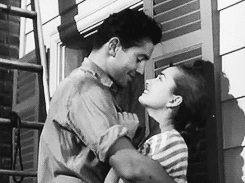

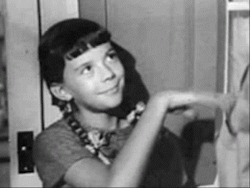

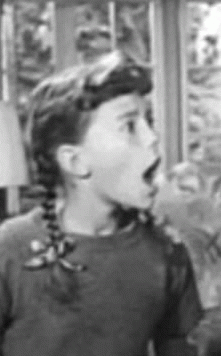

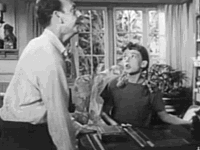






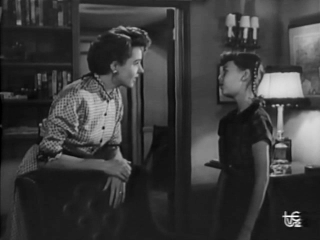
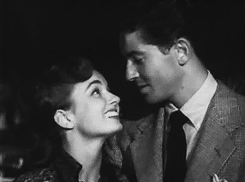



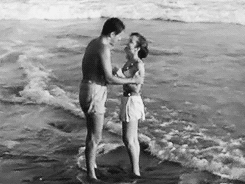


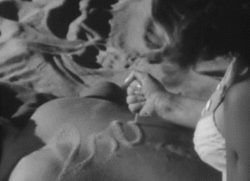
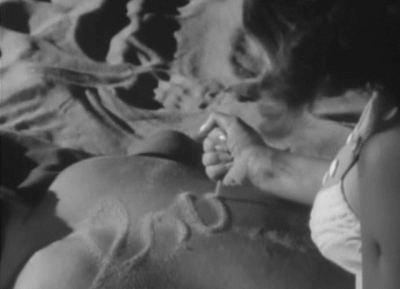



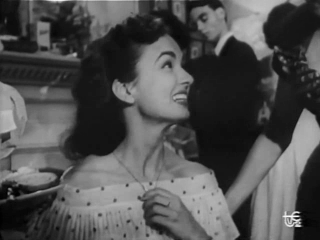


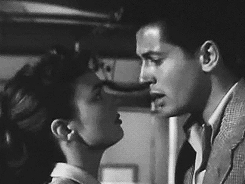






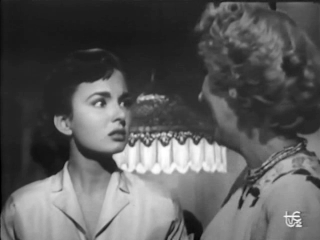








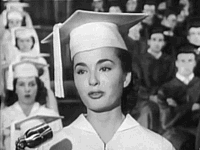



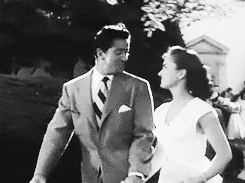
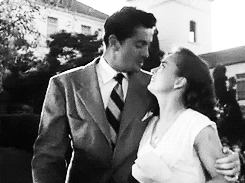







!~~-1_12.JPG)

















.jpg)





.jpg)




















.JPG)























.jpg)











.jpg)







.jpg)





.png)




.jpg)






.jpg)













.jpg)


.jpg)










.jpg)



.jpg)

.gif)

.jpg)



.jpg)

















.jpg)
.jpg)

.jpg)
.jpeg)